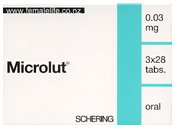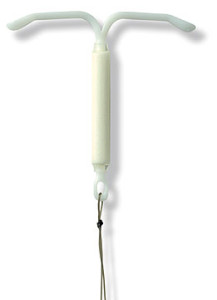Contraception After Pregnancy
Contraception After Pregnancy
After you have had your baby, don’t assume you will not get pregnant until you start menstruating. You will ovulate two weeks before your first period. It is important to know what your contraception choices are.

When it comes to unprotected sex after delivery, you can go from having no period due to breastfeeding to no period because you’re pregnant, potentially not realising it until well into the first trimester. You need to use contraception after pregnancy or a form of birth control to prevent pregnancy from the time you have sex unless you are wanting another pregnancy soon.
Breastfeeding and Birth Control
Breastfeeding will give some protection, especially while you are fully breastfeeding. Breastfeeding should not be relied on exclusively as a birth control method, as unplanned pregnancies do occur while breastfeeding.
While breastfeeding we don’t prescribe the combined oral contraceptive pill as birth control. This is because the combined contraceptive pill can result in suppression of milk supply. So if you were on the combined pill before you fell pregnant you will need to choose an alternative while breastfeeding. If you are not breastfeeding this is not an issue. If you’re breastfeeding, you should discuss with your nurse or doctor whether the combined pill, vaginal ring or patch is suitable for you.

Contraceptive Options while Breastfeeding:
The mini-pill (progestogen-only pill)
A progestogen-only pill is a birth control method that is recommended if you are breastfeeding as it is less likely to reduce milk supply. Occasionally a progestogen-only pill can cause nuisance bleeding. Also, it must be taken within the same 3 hour time period each day to be effective.
When you stop breastfeeding and if you don’t want to have another baby yet, you should switch to alternative contraception such as a combined oral contraceptive pill as this is more effective. Most women still ovulate while taking a progesterone-only pill and so there is usually no extra delay in conceiving when you stop taking it.
The Mirena IUCD (intrauterine device)
The Mirena IUCD is another progesterone based option, that can be used if breastfeeding. This form of birth control should not reduce your milk supply and so can be inserted when breast feeding. This intrauterine device is very effective and has a life of 4 – 5 years after being inserted into your uterine cavity. It can be removed at any time, including when you decide to have another baby. It can occasionally cause some initial nuisance bleeding especially in the months immediately after insertion, and very occasionally emotional liability and depression.
Pelvic infection and unplanned pregnancy would be less often than with other types of IUCD’s. Menstrual loss is reduced dramatically usually with the Mirena IUCD. Often there are no periods. Most women still ovulate while having a Mirena IUCD in situ and so there is usually no extra delay in conceiving when it is removed.
Implanon rod
The Implanon Rod is another progesterone based option, that can be used if breastfeeding. It is inserted into your arm below the skin, and should be replaced each 3 years. Amenorrhoea (no periods) happens in about 1 of 5 women while another 1 of 5 women report frequent and/or prolonged bleeding. The Implanon Rod stops ovulation and so there can be an extra delay in conceiving after it is removed.
DepoProvera injections
Depo-Provera is progesterone intramuscular injection given each 3 months. It can be administered if breastfeeding as it should not reduce your milk supply. While being very effective in preventing pregnancy it is associated with bleeding which can be heavy. It can also result in amenorrhoea. After ceasing the injections it can be a quite a while before you can resume ovulating.
NuvoRing (vaginal ring)
The NuvoRing also known as a vaginal ring, is a safe and convenient birth control method that works really well if you use it correctly. You wear a small, flexible ring inside your vagina, and it prevents pregnancy 24/7 by releasing hormones into your body. The vaginal ring has lots of other health benefits too such as helping prevent or lessen acne, bone thinning, PMS, iron deficiency, and cysts in the breasts or ovaries.
Condoms
Condoms are currently a popular option when it comes to methods of birth control. This is because women are now less inclined to use combined hormonal methods of contraception. Women still ovulate while relying on barrier contraception and so there is no extra delay in conceiving after ceasing barrier contraception.
The Diaphragm
The diaphragm is a form of birth control which needs to be fitted by a gynaecologist so you have the correct size. It is a form of barrier contraception that will prevent pregnancy. It is a form of birth control that doesn’t need to use combined hormonal methods.
The Withdrawal Method
The withdrawal method is not recommended as it is too unreliable. Timing intercourse around your menstrual cycle and observing cervical mucous changes can only be started once you start menstruating.
The birth control method you choose is completely up to you. Contraceptive options will be discussed in detail at your postnatal visit. I will then be able to assist you in choosing the birth control option which best aligns with your wishes and is most suitable for you.
If you have contraceptive needs prior to your six-week postnatal visit please let me know.
If you would like to discuss contraception methods and create a plan for what is most suitable for you, please get in touch today!
See also
- Contraception in the Questions and Answers section.
- Sexual Intercourse after delivery in the Questions and Answers section
Book an appointment now
- Monday all day 9.00am to 4.30pm
- Tuesday all day 9.00am to 4.30pm
- Wednesday all day 9.00am to 4.30pm
- Thursday morning 9.00am to 12.30pm
- Thursday alternate afternoons 2.00pm to 4.30pm
- Friday alternate mornings 9.00am to 1.00pm
- Friday afternoon 2.00pm to 4.30pm
- Saturday mornings 9.30am to 12.00 midday*
*Saturday morning appointments are not available for initial antenatal visit.

